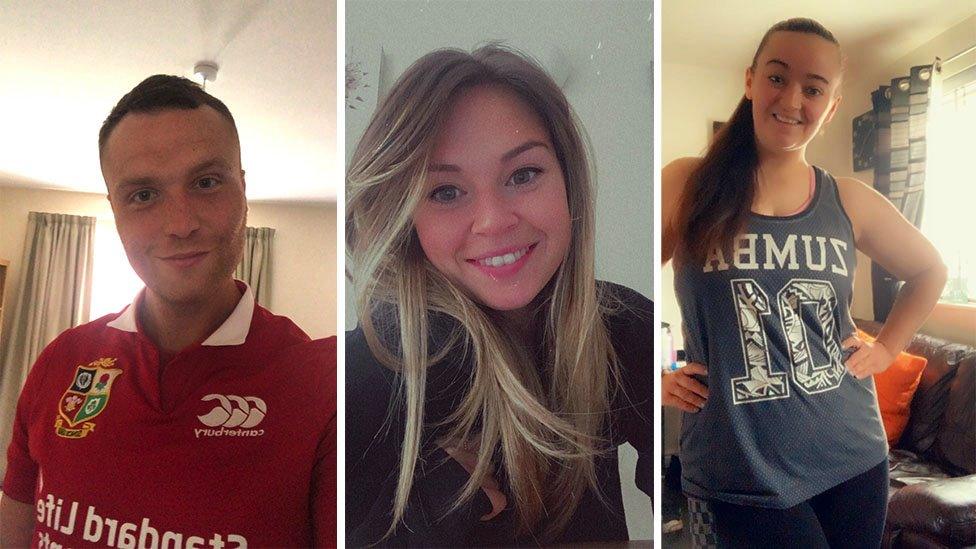NHS paramedics: 'The suicide callouts stay with you'
- Published
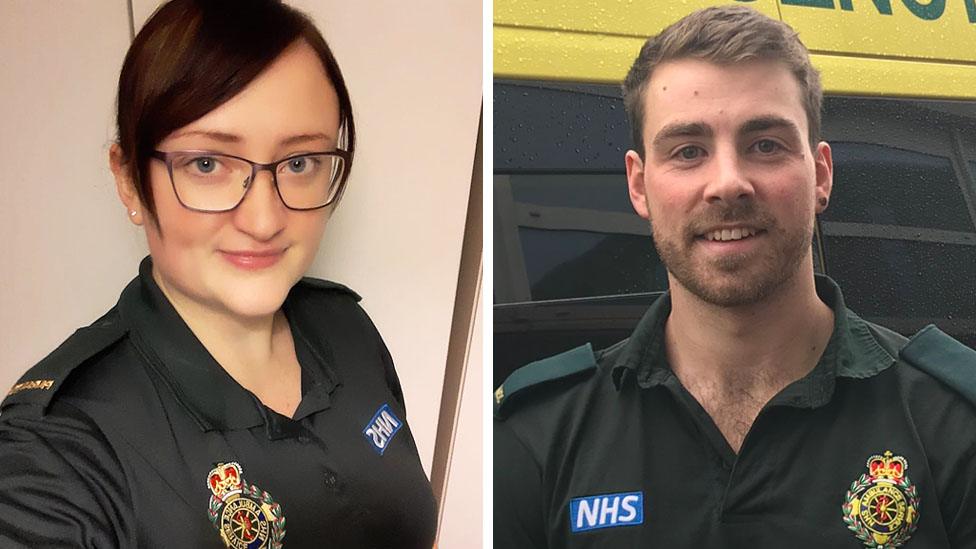
Both Kathy and Ben rely on their colleagues for support on the bad days
"There are images of the person. It's hard to get that out of your head."
Paramedics like Ben Rean are used to being on the frontline, regularly dealing with traumatic medical emergencies.
But there are some callouts, like those related to suicide, that can feel different.
The London Ambulance Service has said, external the number of suicide and attempted suicide incidents has increased, with crews attending an average of 37 callouts per day, compared to 22 in 2019.
"The emotional side is harder with suicide because you know what they're trying to do," 29-year-old Ben tells Radio 1 Newsbeat.
Dealing with the call
Ben, who works for West Midlands Ambulance Service, tries to follow the same process each time he receives such a call.
"We have to consider how [the person's condition] will affect the way they behave with us," he says.
Ensuring their own safety is a priority so they are able to help the patient.
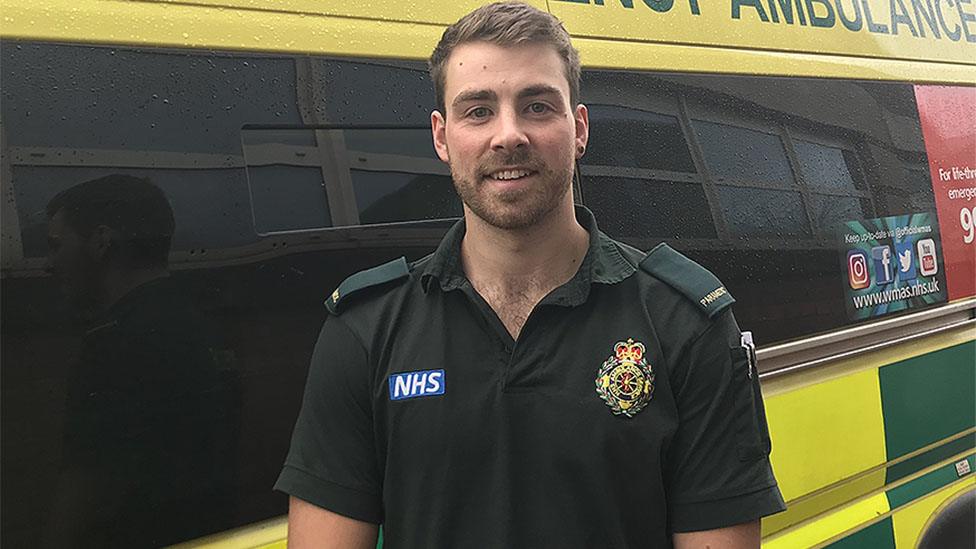
"I think of what's going on and what I can do to help them," says Ben from West Midlands Ambulance Service
"Often the fact we have been called by them is a really good sign that we can make a difference," he adds.
Kathy Spencer agrees and says it's important to keep "an open mind" with each incident, but that things can become harder when there's a connection with the patient.
"Because you are human and can put yourself in their shoes, especially if it's problem you can relate to," the 28-year-old North West Ambulance Service paramedic tells Newsbeat.
"Sometimes a patient stays with you because you wonder how they were after that point of contact."
Breaking bad news
Lots of us can relate to how hard it is to find the right words speaking to someone who's lost a loved one.
"It's one of the hardest parts of the job which never gets easier," Ben says.
He's aware that while he may never see a family again, they will always remember him and his words.
"We may see seven or eight patients a day, and not remember all the calls in the future.
"But for families who've lost their loved ones, we'll stick with them forever, even if we're there for just an hour."
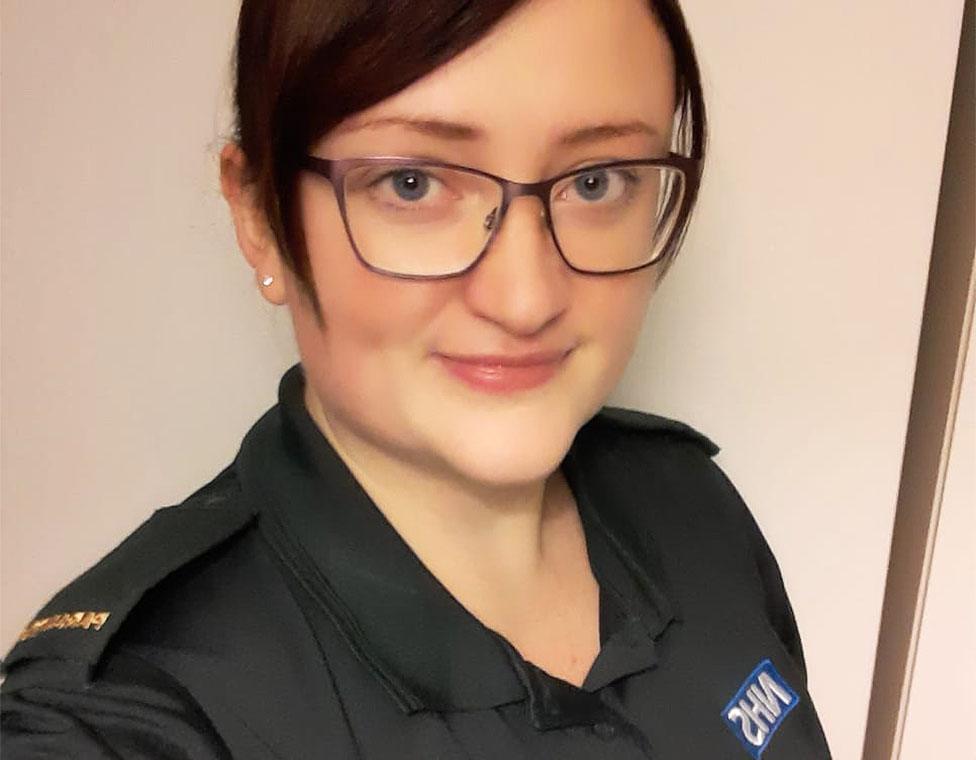
Kathy works for North West Ambulance Service in Blackpool and often deals with mental health-related calls
Kathy adds not knowing how someone will react makes it tough.
"So it's always important to be patient. I let them ask any questions they want to and be clear about what's happened."
And you might think it gets easier over time, but Kathy says each case is "very much individual".
She said developing an approach makes "you hope it gets easier, but every situation can be a new one."
'You have to try and not put yourself in their shoes'
We're often told to connect with others to understand what they are going through.
But for paramedics like Ben and Kathy, that's not always possible.
"You'd run yourself into the ground if you took every patient home that you saw in a day," Kathy says.
In his personal life, Ben knows people who have taken their own life.
"You do think about that process of them getting to that point, being in crisis and leaving people behind who love them."
It's why at work, he says, "you have to try and not put yourself in their shoes. Because if you do, you can make yourself really think about it for a long time."
Trying to cope
Both Ben and Kathy rely on speaking to colleagues to not get overwhelmed by the bad days.
"I think it's important to talk to people who understand if something at work has been difficult to deal with," Kathy says.
But it's also important to distract yourself.
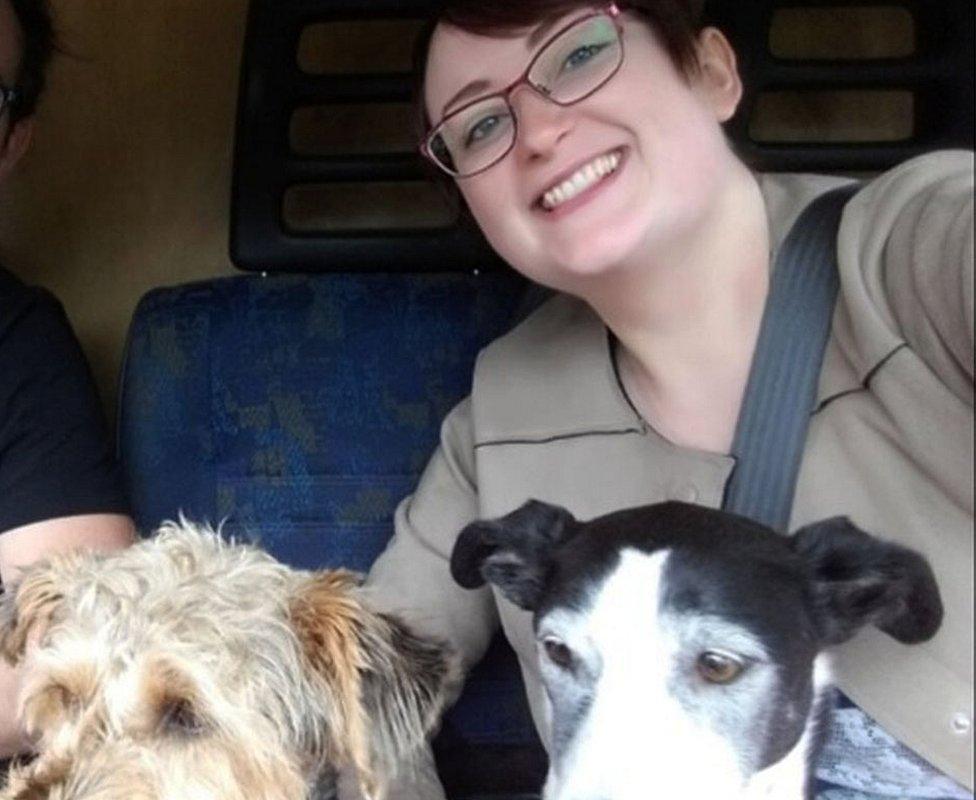
Kathy says yoga helps her stay mentally strong after a hard day - and the love of her dogs
"Exercise is my release, doing a lot of running, cycling and gym. Music is a big one to take my mind off it," Ben says.
"My wife is really important because she's not in medicine. So although she doesn't understand what we've seen, she's great at listening and understanding."
And the biggest thing Ben takes away at the end of a rough day?
"Knowing my family is safe and sound."
For information and support on mental health and suicide, access the BBC Action Line.


Follow Newsbeat on Instagram, external, Facebook, external, Twitter, external and YouTube, external.
Listen to Newsbeat live at 12:45 and 17:45 weekdays - or listen back here.
- Published12 October 2020

- Published6 September 2020
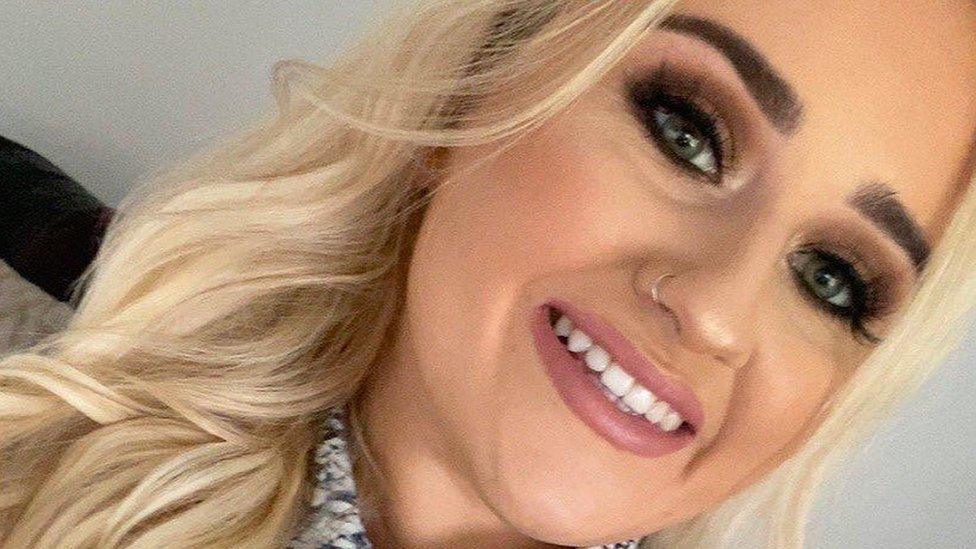
- Published23 January 2020
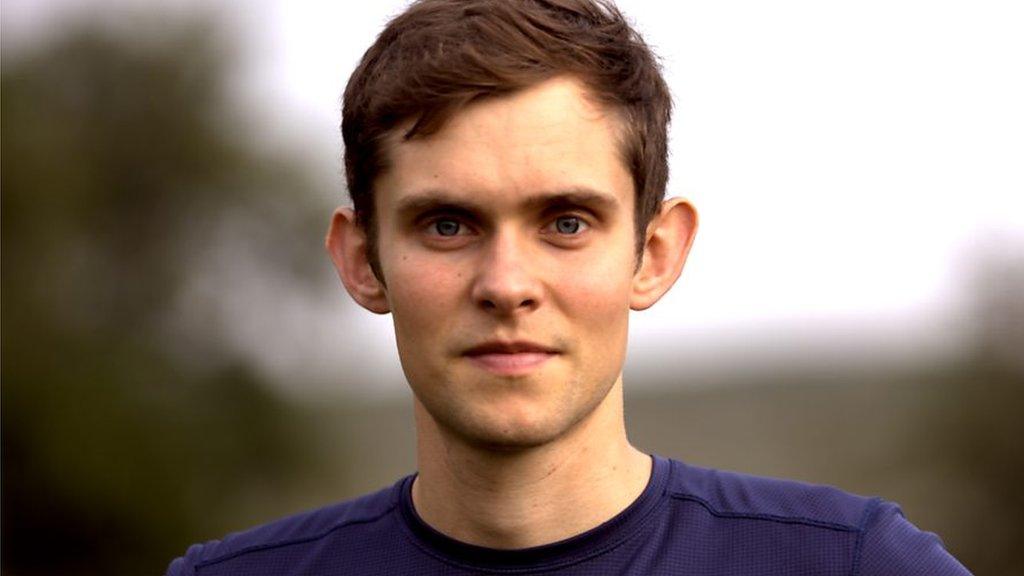
- Published25 July 2020
